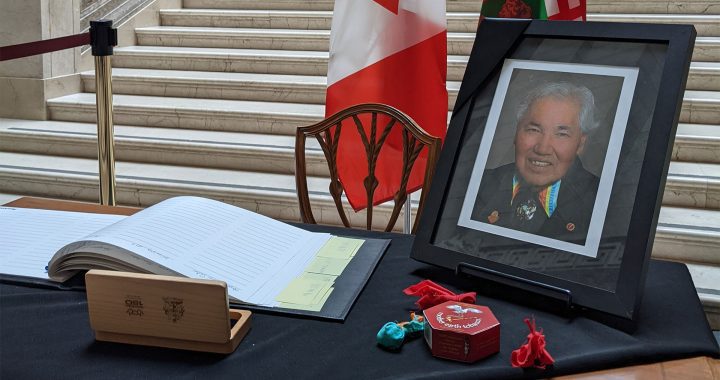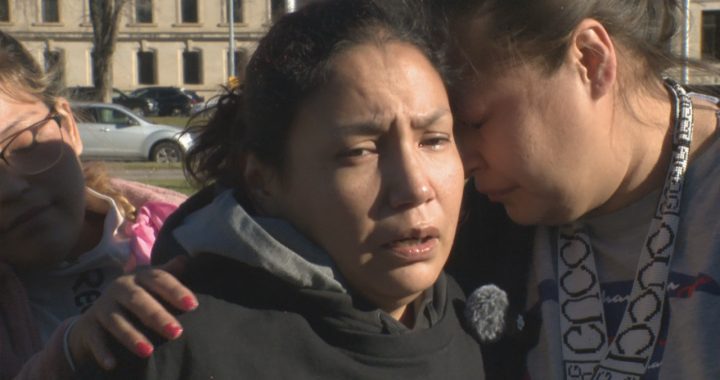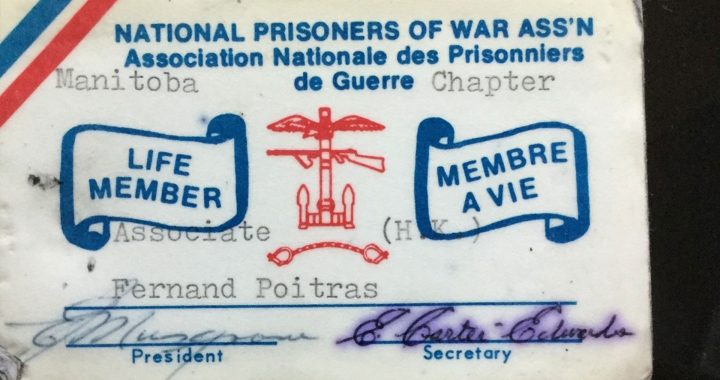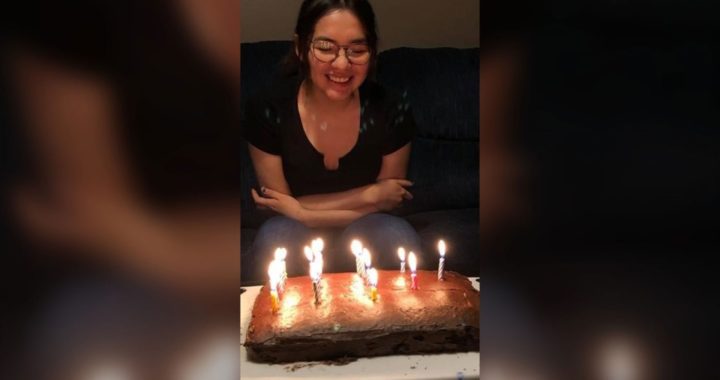At 21 years old, Tia Wood left the familiar dirt roads of her Saddle Lake Cree Nation in Alberta to walk the palm tree-lined streets of Los Angeles.
She was in town for a music conference, but when it came time to leave, it felt wrong to say goodbye.
“It was like two days before I was supposed to head back to the reserve, and I was like ‘man, I feel like I have something to see through here, like there’s something telling me I should stay and just see what happens’,” Wood told APTN News.
For a time, she lived on ramen noodles and the contents of her suitcase.
“I had just enough money for the first month’s rent on this room that I found on Facebook marketplace,” she said. “It was scary, you know? It was also very exciting, but it was scary because I was leaving everything that I grew up knowing behind.”
Four years later, the Plains Cree and Coast Salish musician’s career has reached new heights.
On Sept. 27, Wood released her debut EP, Pretty Red Bird with Sony Music. The five-song record opens with Wood’s first single and love letter to Saddle Lake, “Dirt Roads”.
After spending much of her life in L.A. for the past four years, the 25-year-old returned home to shoot a music video for her new single.
When it came time to choose a title for the EP, one name stood out: the one her aunties, cousins and grandparents called her growing up.
“Pretty Red Bird is actually my middle name,” she said. “This is my first release into the world, so it kind of just made sense to call it that.”
Musical roots
Music runs in Wood’s blood.
Her father, Earl Wood, is behind the Grammy-nominated drum group, Northern Cree. Her mother, Cynthia Jim, was a member of an all-girls drum group called Fraser Valley. Her sister is the Juno award-winning musician, Fawn Wood.
Growing up, summers were spent travelling and performing with her family along the pow wow trail.
Today, Wood blends elements of her paternal Plains Cree and maternal Coast Salish culture into her life and music.
“In every song, it’s incorporated because it’s Indigenous storytelling,” she said. “It goes back to my parents, who were the ones who taught me how to sing, and it goes back to even before that.”
On being a role model
In 2020, while visiting her mother in British Columbia, Wood posted her take on a popular TikTok sound by adding Indigenous vocals.
Suddenly, her phone was buzzing with notifications.
“It just blew up,” she said. “It was so insane. I think that was a moment for me where I was like ‘wait, maybe there is a place for this kind of sound where I can mix the two’.”
The video has since accumulated 21 million views.
As her platform grew, virality came with a sense of responsibility.
“I wanted to shed light on things that I think don’t get talked about enough, which is issues inside of the Indigenous community like MMIW, residential school survivors and all that kind of stuff,” she said.
Today, she gives her audience of 2.2 million “aunty history lessons” while sharing her music with the world.
Growing up, Wood said there were few mainstream Indigenous singer-songwriters to look up to. Now, as one of the first Indigenous women to be signed to Sony Music’s label, she wishes she could tell her younger self there’s a place for her.
“I would just say to not doubt yourself, and there [are] spaces for her story to be told,” she said.
Pretty Red Bird is available on all major streaming platforms.










